When it comes to ensuring the best possible care for you or your loved ones, a detailed home care needs assessment is essential. This process helps to identify individual requirements, preferences, and challenges, ensuring that tailored support is provided. Understanding the nuances of home care can seem overwhelming, but it's an important step towards enhancing quality of life and independence. So, if you're curious to learn more about how to navigate this process and find the right care solutions, keep reading!
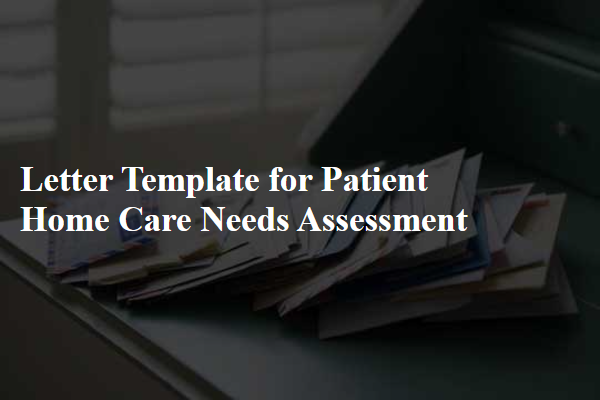
Personal Information Collection
A comprehensive home care needs assessment is vital for developing personalized patient care plans. Personal information collection includes essential details such as full name, date of birth, and medical history for identification and treatment purposes. Address and contact information are crucial for scheduling and emergency communication. Healthcare provider details, including primary care physicians, specialists, and insurance information, support effective coordination of care. Understanding living arrangements--such as whether the patient resides alone or with family--provides insight into available support systems. Additionally, documenting current medications and any allergies ensures safety and appropriate care management. Regular updates to this data are necessary to reflect any changes in the patient's condition or care needs.
Medical History Documentation
A comprehensive medical history documentation is essential for assessing patient home care needs. Important factors include chronic illnesses, such as diabetes and hypertension, often leading to complications that require vigilant monitoring. Details about past surgeries, including dates and outcomes, provide insight into potential limitations in mobility and daily activities. Current medications, particularly polypharmacy situations involving multiple prescriptions, necessitate careful management to avoid adverse interactions. Understanding allergies--both medication and environmental--can prevent critical reactions during care. Family medical history may also reveal hereditary conditions that could influence the patient's care plan, highlighting the need for preventive measures. Additionally, cognitive status and mental health history play vital roles in tailoring support services, ensuring safety and quality of life for the patient in the home environment.
Care Plan Outline
A comprehensive patient home care needs assessment involves evaluating specific aspects of a patient's condition and their living environment to create an effective care plan. Key components include medical history (chronic conditions like diabetes or hypertension), physical capabilities (mobility issues requiring assistance), cognitive status (presence of dementia affecting daily tasks), emotional well-being (impact of depression on social interactions), and social support system (family or friends available for assistance). Other considerations are safety measures in the home (such as fall hazards), medication management (ensuring adherence to prescriptions), nutrition needs (specific diet requirements), and access to medical equipment (like wheelchairs or oxygen tanks). Finally, the patient's goals (preferences for care) play a critical role in shaping a tailored and effective care strategy to improve overall health outcomes and quality of life.
Daily Living Activities Evaluation
Daily living activities evaluation assesses the capability of patients to perform essential self-care tasks, such as bathing, dressing, and meal preparation. This assessment helps determine the level of assistance required for individuals, particularly seniors and those recovering from surgery or chronic illnesses. Key factors include mobility (ability to move safely around the home), cognition (mental capacity to understand and make decisions), and safety (environmental hazards in the home). A comprehensive evaluation often leads to personalized care plans, addressing specific needs such as mobility aids, nutritional support, or assistance with medication management. Families and caregivers play a crucial role in this process, ensuring that patients maintain independence while receiving appropriate assistance.
Service Coordination Details
Patient home care needs assessments require detailed service coordination to ensure comprehensive support. Initial evaluation processes typically involve a registered nurse conducting home visits to assess the patient's medical history, physical condition, and daily living abilities. Essential services may include personal care assistance, medication management, and physical therapy tailored to improve mobility. In many cases, the assessment may lead to collaboration with a multidisciplinary team, which consists of social workers, occupational therapists, and nutritionists, to address both medical and emotional needs. Resources are often identified, such as local community support groups or transportation services, to enhance patient quality of life. Coordination efforts focus on developing individualized care plans, setting specific goals, and implementing regular follow-up protocols to monitor progress and adjust services as required.

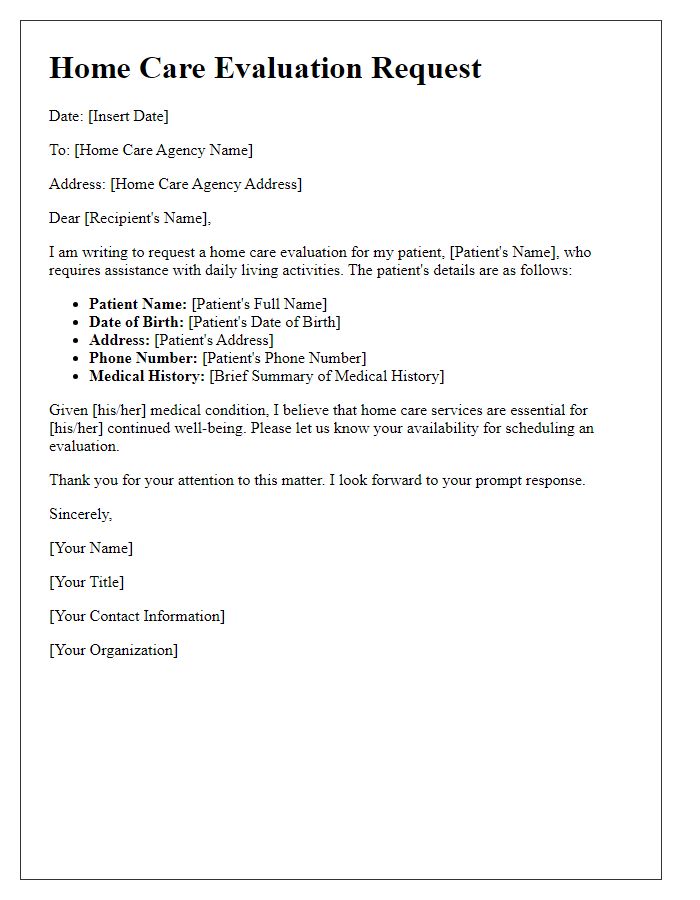
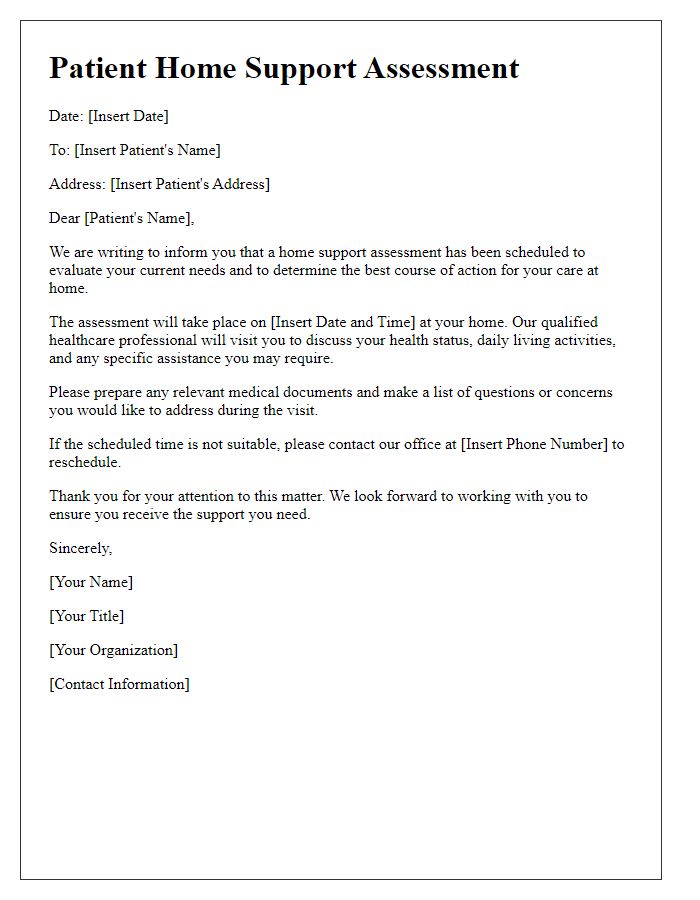
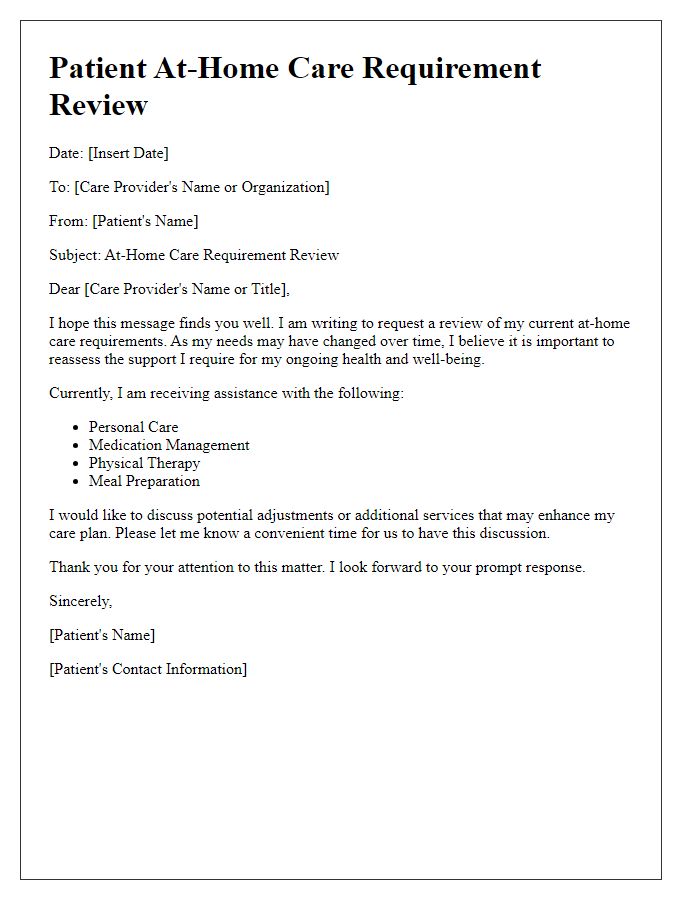
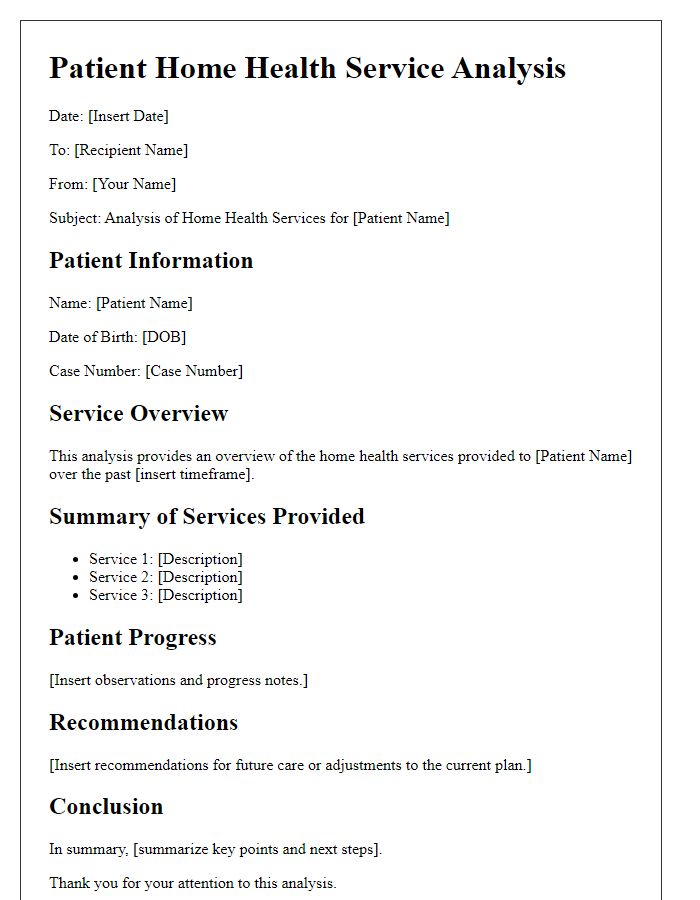
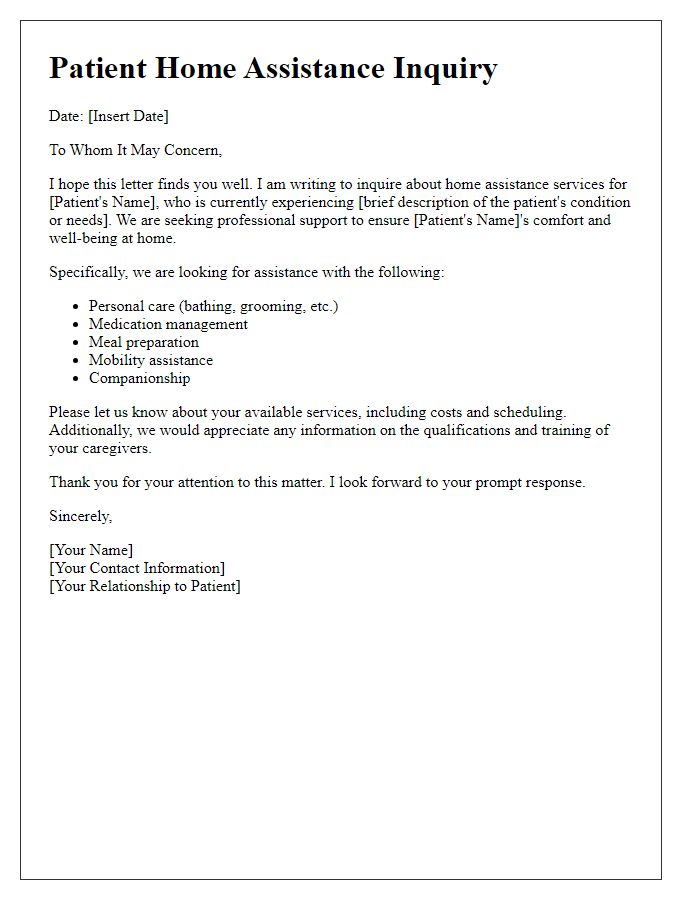
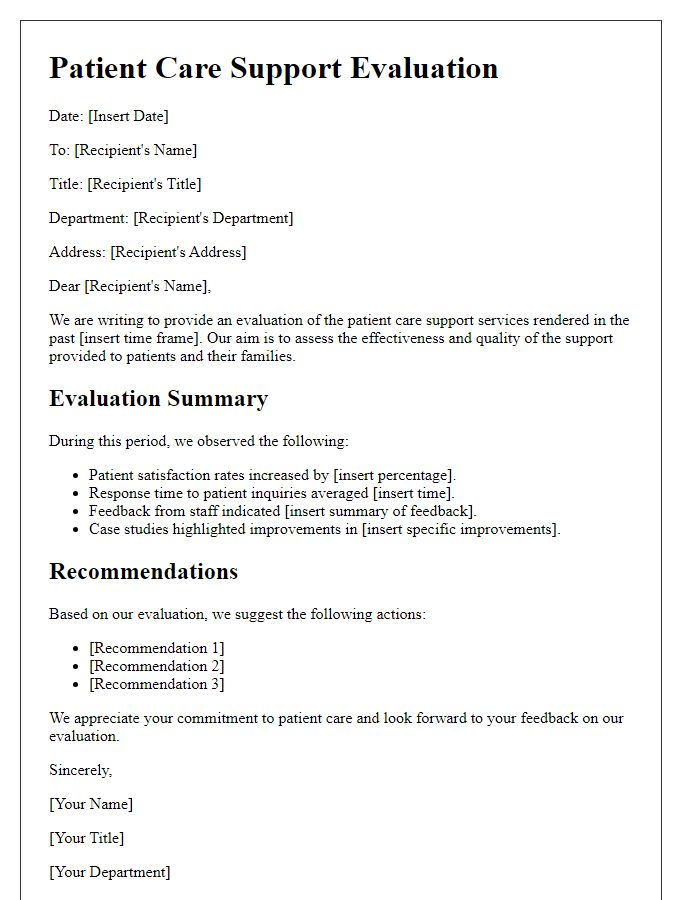
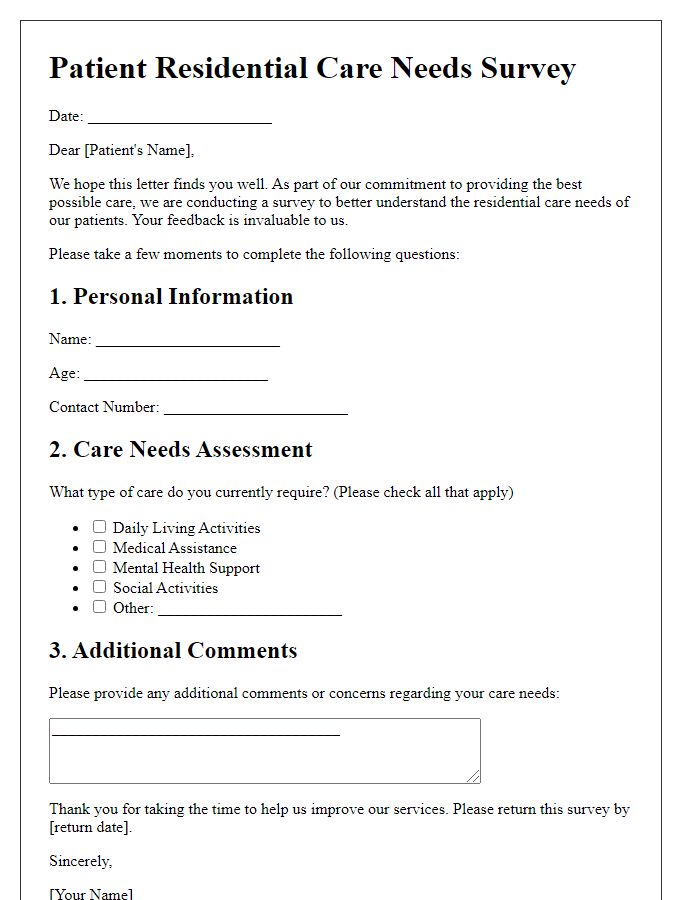
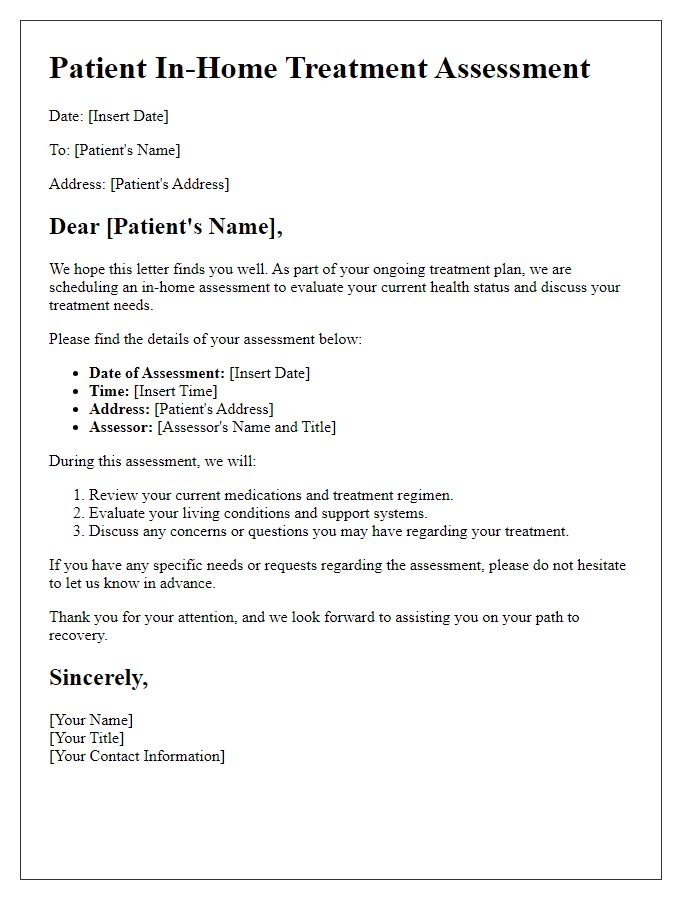
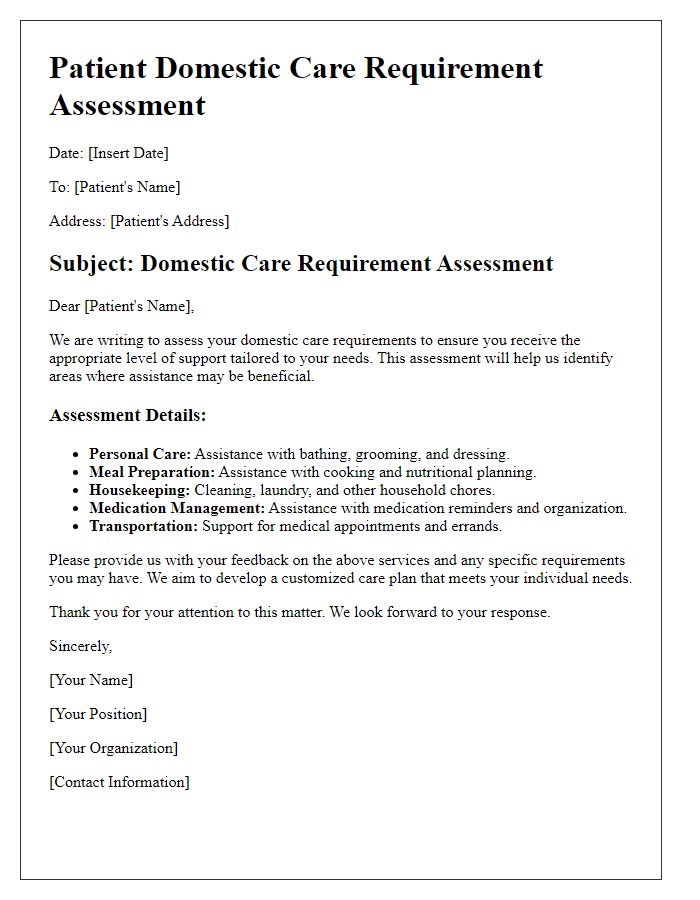
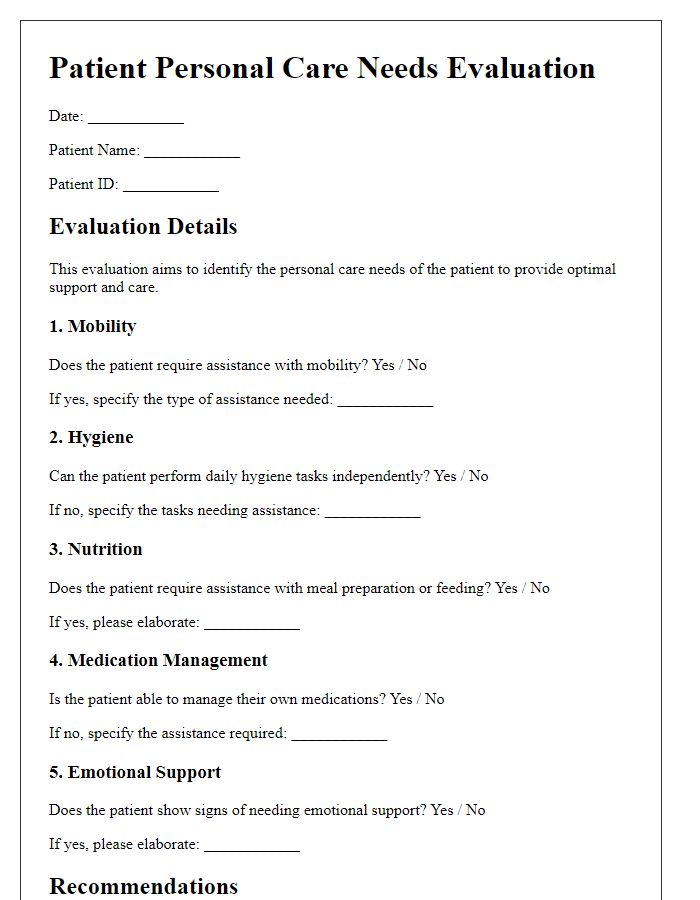


Comments